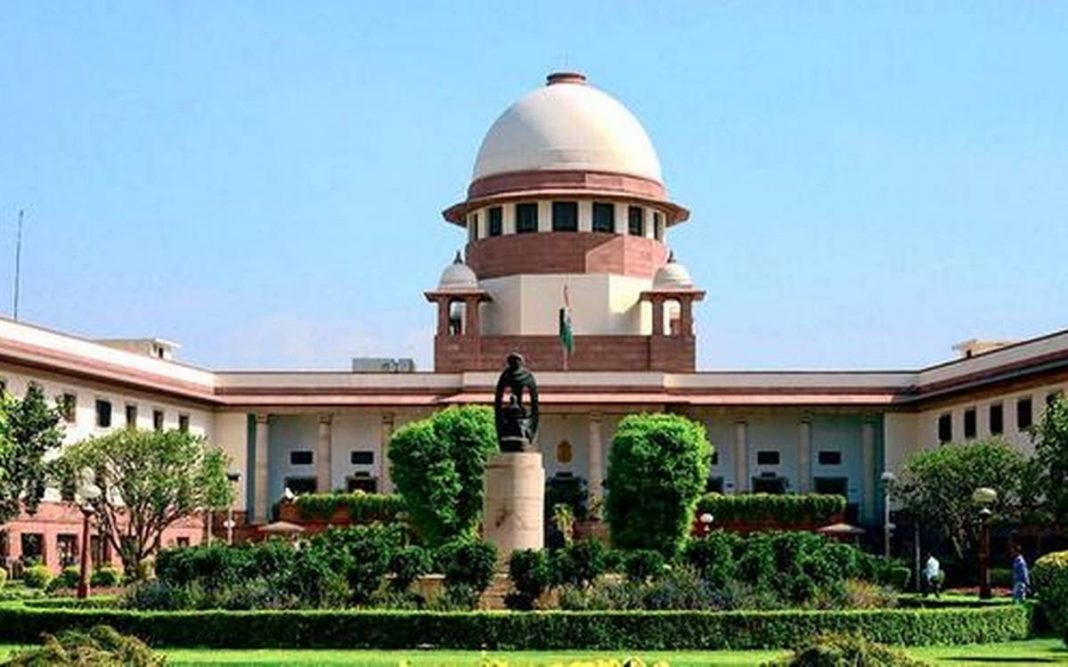An impleadment application has been filed to add the Jamiat-Ulama-i-Hind as a party in the petition challenging the constitutional validity of Uttar Pradesh Prohibition of Unlawful Conversion of Religion Ordinance, 2020 and the Uttarakhand Freedom of Religion Act, 2018. The organization has stated in the petition.
That the Ordinance attempts to regulate a personal decision of each human being by encroaching upon an individual’s choice to convert to a religion of his/her choice.
It is submitted that scrutiny by the State of such a personal decision is a grave assault on personal liberty of an individual and is violative of Article 21.
That the Ordinance makes it a criminal offence to convert a person by offering him/her an “allurement”. The term “Allurement” has been defined in Section 2(a) as follows:-
“Allurement” means and includes offer of any temptation in the form of:-
i. Any gift, gratification, easy money or material benefit either in cash or kind;
ii. Employment, free education in reputed school run by any religious body; or
iii. Better lifestyle, divine displeasure or otherwise
Allurement has been defined very broadly, to include even providing a gift to the person who is sought to be converted. This means if a person belonging to one religion, say Islam, gifts a non-Muslim, a book concerning the teachings of Islam and the said non-Muslim person who received the book after reading it decides to convert to Islam, the said conversion could be said to have taken place by “allurement” since it occurred after a gift was given to the convert. Further, the use of the words “or otherwise” makes the definition of allurement even more ambiguous and encroaches upon the right to propagate faith guaranteed by Article 25 of the Constitution.
It is further submitted that when a person decides to convert to another religion, such a move is usually preceded by in-depth study of such other religion and many times such material is sought from other persons professing the said religion, however the Ordinance makes these other persons criminally liable, by terming this sharing of religious material, as “allurement”.
“That several times in cases of interfaith marriages, a person converts to embrace the faith of their spouse. In our nation, interfaith couples often bear the brunt of being ostracized from the community, so much so that the families engage in the crime of “honour killing”, thereby murdering their very own kith and kin, who have dared to marry outside their faith. Thus, in majority of cases, even if a person converts out of his/her own free will, the family members of the convert object to such conversion.”
– Jamiat-Ulama-I-Hind to Supreme Court
Further, Section 8, provides that the person who desires to convert has to give a declaration at least 60 days in advance, while the person who performs the conversion ceremony has to give one month’s advance notice. It is submitted that such a provision not only invades the right of privacy but also risks the security of those persons whose families are opposing the conversion.
The applicant also delves into Justice K.S. Puttaswamy and Ors. vs. Union of India (UOI) and Ors to substantiate its averment of upholding right to privacy as a fundamental right and that it is abrogated in the current context.
The Supreme Court on Monday issued notice on the petitions challenging the laws made by Uttar Pradesh and Uttarakhand in the name of ‘love jihad’ against religious conversions for the sake of marriages.
The bench had declined to stay the provisions of the laws which require prior permission for religious conversions for marriage.


